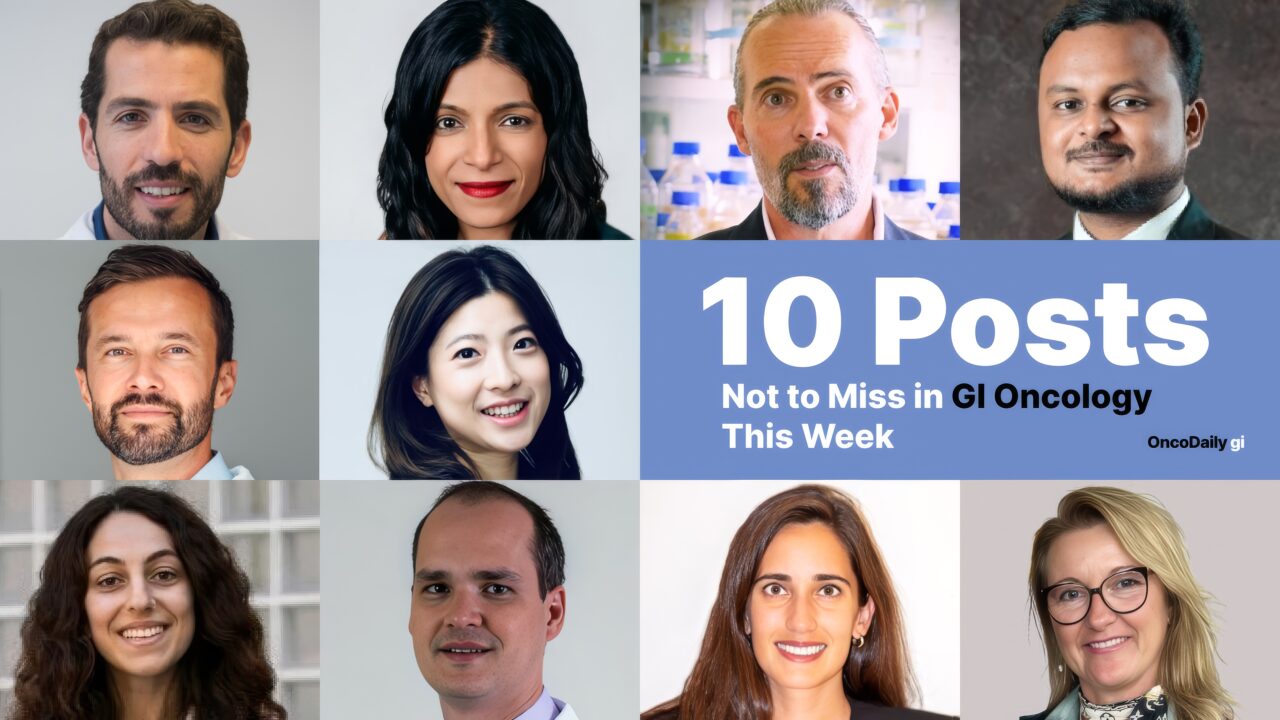At OncoDaily GI, we continue to spotlight the most important breakthroughs, clinical updates, and translational research shaping the future of GI oncology. This edition covers highlights from the last week of September, spanning prevention, precision medicine, and equity in cancer care. From Lynch syndrome immunoprevention to AI-powered HCC pathology, liquid biopsy for pancreatic cancer, and new access strategies for GI drugs, this week’s updates capture the latest progress driving the field forward.
Dive into the newest data on HCC radiotherapy outcomes, METTL inhibitors, microbiome-driven CRC research, and FGFR2-targeted BTC therapy — featuring insights from leading experts worldwide.
Francesc Balaguer, MD, PhD (Head of the Gastroenterology Department, Hospital Clinic de Barcelona)
“We are proud to announce a major milestone in cancer prevention for Lynchsyndrome. The first patient has been vaccinated in our Phase 1 trial with an autologous dendritic cell vaccine loaded with Lynch-specific neo-peptides.
Lynchsyndrome is the most common hereditary cause of colorectal and endometrial cancer. In this syndrome, inherited DNA mismatch‐repair mutations create characteristic mutant “neoantigens” (frameshift neopeptides) that can be recognized by T cells. This innovative strategy aims to harness the immune system to recognize and eliminate precancerous cells before tumors develop.”
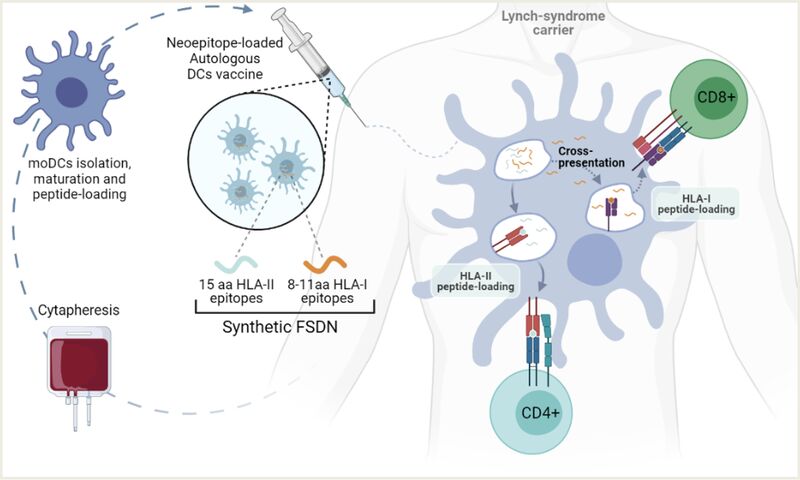
Find more information about trial
University of Arizona Comprehensive Cancer Center – Fostering Innovation in Research and Clinical Cancer Care
“A $575,000 National Cancer Institute grant will empower the Arizona Clinical Trials Network (ACTN) to broaden its partnerships with medical facilities statewide — giving more patients access to cancer prevention screenings and cutting-edge treatments close to home.
Leading this initiative is Rachna Shroff, MD, MS, head of ACTN and principal investigator of the grant, who is widely recognized for her expertise in pancreatic and hepatobiliary cancers. This expansion strengthens Arizona’s commitment to bringing innovative clinical research directly to the communities that need it most.”

Catherine Alix-Panabières, MD, PhD – Full Professor of Oncology, University of Montpellier – Visiting Professor, University of Hamburg – WG Leader, ELBS
“It was a true honor to take part in the Symposium on Pancreatic Cancer organized by la Fondation ARC near the Château de Vincennes
I had the opportunity to present our PANLIPSY Project, which aims to develop a LiquidBiopsy approach to detect this extremely aggressive cancer as early as possible. Artifical Intelligence will play a key role to define the right algorithm. Just a simple blood test could one day enable very early screening and rapid patient care, making a real difference against this deadly disease.
This initiative reflects an exceptional mobilization:
18 research teams are launching ambitious projects, supported by nearly 12 million euros from the BertrandKamal Fund & Fondation ARC pour la recherche sur le cancer.At the Liquid Biopsy LCCRH Lab – Laboratoire Cellules Circulantes Rares Humaines, CHU de Montpellier, we are proud to be part of this extraordinary scientific and human adventure, enriched by inspiring encounters with the other laureates. Frederic Bard, richard tomasini, Patrick Mehlen…
One of the most moving moments was spending time with Bertrand-Kamal’s parents, Annick and Samir, and with Denis Brogniart, who has been deeply involved in this cause for the last years, since Beka left us. A heartfelt thank you to Fondation ARC pour la recherche sur le cancer for their trust and support. Together with our collaborators in France and across Europe (PANCAID, Klaus Pantel, Rainer Heuchel, Matthias Löhr), we are putting all our energy into making early detection of pancreatic cancer a reality.”
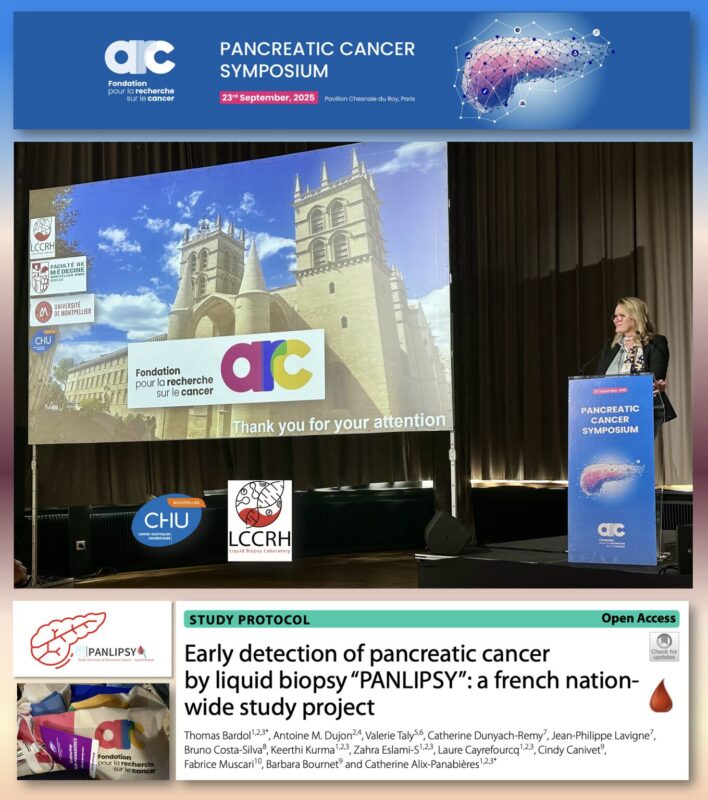
Tiago Cordeiro Felismino, MD – Chief, Upper Gastrointestinal Oncology, A.C.Camargo Cancer Center
“The rising cost of new cancer drugs restricts access worldwide. In our article, we propose dose optimization and drug substitution strategies for gastrointestinal and neuroendocrine tumors in low- and middle-income countries, aiming to expand access and reduce disparities.”
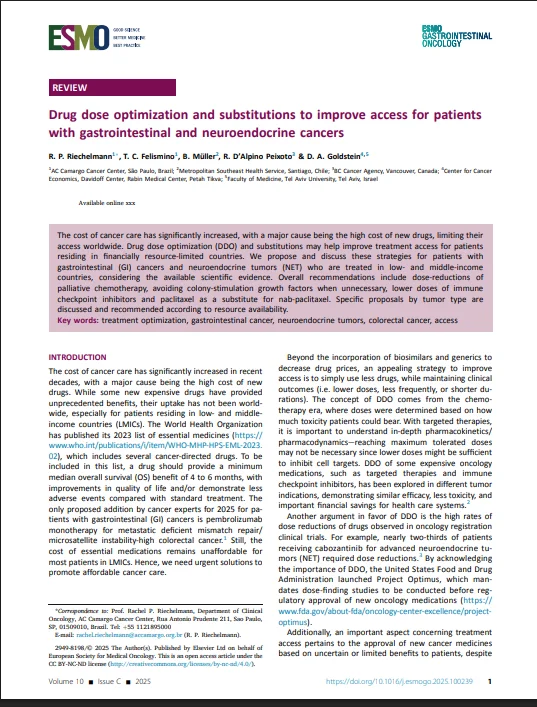
Natalie Wong, MD – Specialist in Clinical Oncology, Hospital Authority, Hong Kong
“Stereotactically designed hypofractionated image-guided radiotherapy (HIGRT) at modest RT doses has demonstrated safety and efficacy in the treatment of large, unresectable HCCs. At a median tumor size of 12.9cm (range, 5.1-25.7cm), the one-year, two-year local control, best achievable objective response rates reached 85.5%, 74.1%, and 65.7% respectively in the pre-immunotherapy era. Surgical conversion was made possible (9%), and those undergoing surgery achieved the longest median OS of 47.7months. Toxicity was manageable without significant differences across CP stages.”
Md. Niaz Morshed – PhD Student, LSU Health Shreveport
“Curious how targeting RNA-modifying enzymes could unlock new therapeutic strategies for liver cancer?
New publication alert: Our work on targeting RNA-modifying enzymes in liver cancer is now out in Scientific Reports!
In this study, we identified and validated novel small-molecule inhibitors that simultaneously target multiple methyltransferase-like (METTL) proteins — enzymes increasingly recognized for their role in hepatocellular carcinoma (HCC) progression. Using an integrated computer-aided drug design (CADD) pipeline, molecular dynamics simulations, and in vitro validation in HCC cell lines, we discovered promising compounds with strong therapeutic potential.
Why is this important? HCC remains one of the most aggressive cancers worldwide, with limited treatment options. Our work highlights a multi-target therapeutic strategy against a family of proteins that were previously underexplored, laying the foundation for new drug discovery and future in vivo validation.
Grateful to my co-authors and mentors for their collaboration and support on this journey.”
Nelson Dusetti, PhD – Research Director, INSERM | Pancreatic Cancer & Translational Oncology | Co-founder of Predicting Med, developing transcriptomic tools for precision oncology
“Many thanks to the Fondation ARC pour la recherche sur le cancer for organizing the symposium on pancreatic cancer and for the invitation.
Once again, it was a true pleasure to take part in an intense and enriching moment of science, and a valuable opportunity to strengthen our collective commitment against this disease.
The moving testimony of Bertrand-Kamal’s parents was a powerful reminder of why we continue our efforts: to find solutions for patients and their families.
Congratulations to all the teams involved, and thanks to Fondation ARC, the donors, and partners who make this mobilization possible.”
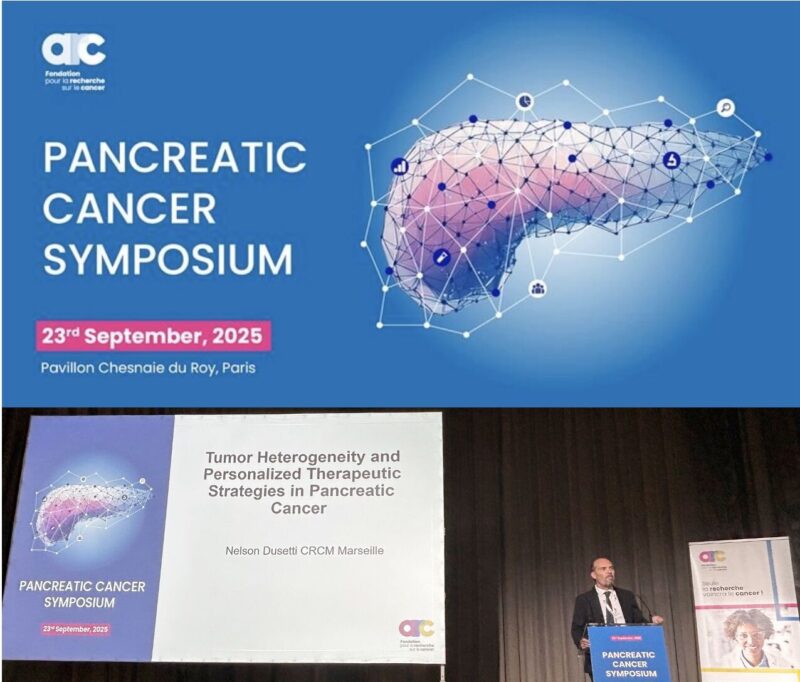
Lukas Weiss, MD – Senior Consultant, Oncology Outpatient Clinic, Department of Internal Medicine III, Paracelsus Medical University Salzburg | SALK – Salzburger Landeskliniken
“Hot of the press in 𝗙𝗿𝗼𝗻𝘁𝗶𝗲𝗿𝘀 𝗶𝗻 𝗜𝗺𝗺𝘂𝗻𝗼𝗹𝗼𝗴𝘆
Our latest article is now online:
Impact of Fusobacterium nucleatum on immune cell interactions and gene expression in colorectal cancerCore message
The gut bacterium Fusobacterium nucleatum reshapes tumor–immune crosstalk and gene expression in colorectal cancer—key insights for future microbiota-targeted therapies.First author Ronald Heregger, MD shines as a young oncologist who delivers excellent clinical care at the Salzburger Landeskliniken – SALK while completing his PhD, which I am proud to supervise at Paracelsus Medizinische Privatuniversität Salzburg.
This paper highlights top level teamwork — with Richard Greil, Daniel Neureiter, Zlatko Trajanoski, Silja Weßler and many more. Heartfelt thanks as well to Prof. Alexander Egle for continuously strengthening Salzburg as a research hub.
Key findings
By mapping immune cell neighborhoods and gene signatures, we describe how F. nucleatum might promote immune suppression and spatial rewiring in the tumor microenvironment.Looking ahead
These discoveries highlight microbiome–immune interactions as promising targets for next-generation colorectal cancer therapies.”
Natalia Soledad Tissera, MD – Oncologist | MD-PhD Student
“New study published in JHEP Reports
Young-onset biliary tract cancer (≤50 y):
Better survival outcomes
Higher prevalence of FGFR2 fusions
Greater benefit from matched targeted therapies
Collaborative work between France & Spain”
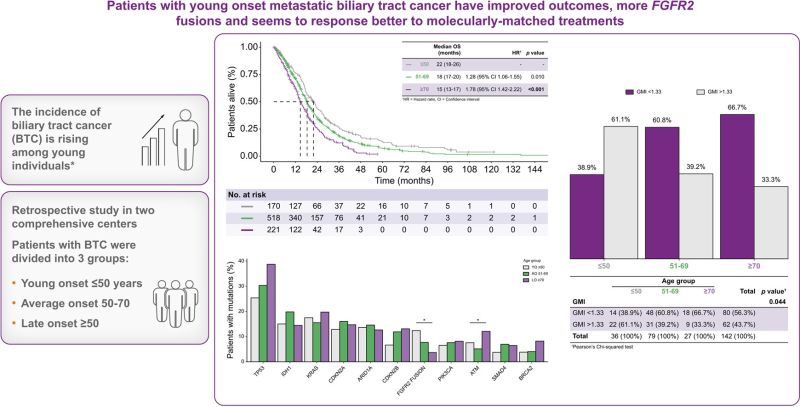
Agavni Mesropian Badalian – PhD student in the program of Medicine and Translational Research at the University of Barcelona
“Very happy to share that one of my main first-author studies has been accepted for publication in Journal of Hepatology Reports!
In this study, we explored how artificial intelligence can predict molecular profiles and microvascular invasion in hepatocellular carcinoma from H&E-stained images.
It’s been a very special journey, as I’ve had the opportunity to present this work at several conferences throughout the year: AEEH (Madrid), EASL (Amsterdam), and EACR (Lisbon). And now, finally, it’s in press! Check it out!”
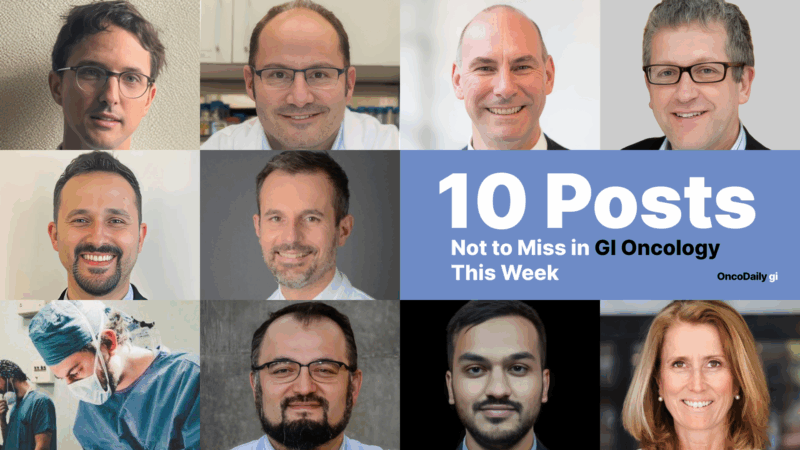
You can read about the 10 Must-Read Posts in GI Oncology from the third week of September on OncoDaily.


